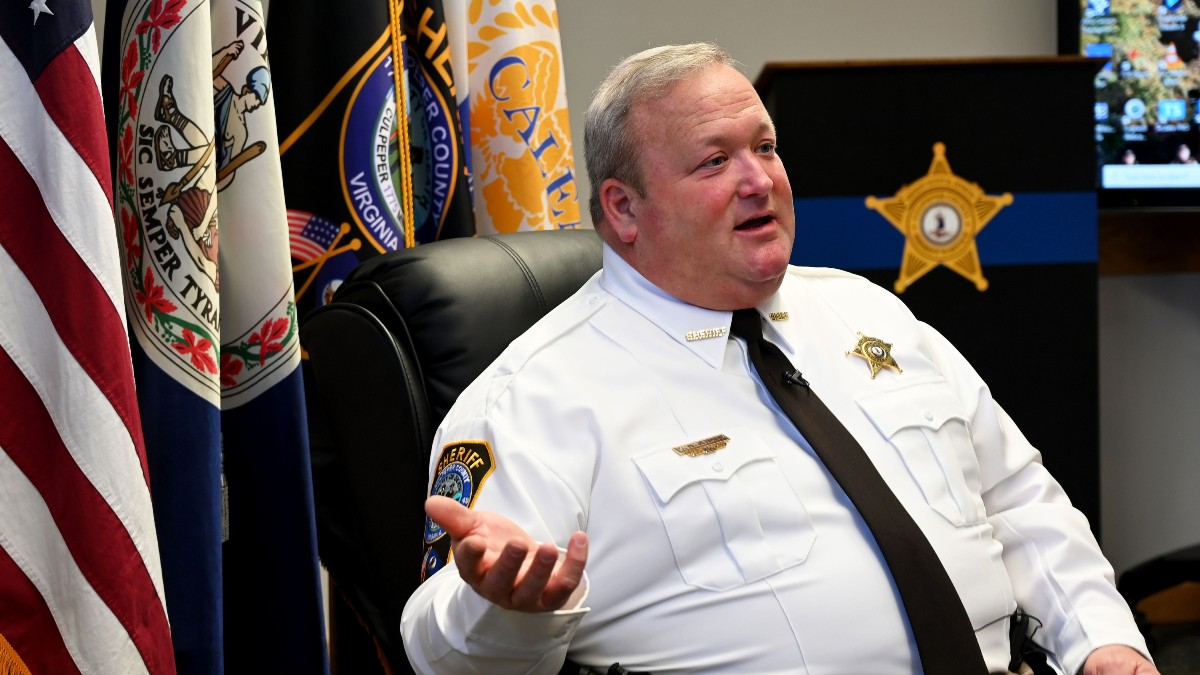Christian Stone always knew he wanted to help people, first working as an EMT in New Orleans and for the past year working as the assistant nurse manager of an emergency room in Maryland.
"In the hospital, in the emergency room, it's already like a tense, high-pressure situation," he told the News4 I-Team.
But he never expected what happened to him while caring for a patient one night at Adventist HealthCare Fort Washington Medical Center.
"I was giving him lifesaving treatment, and next thing I know, I found myself with hands around my neck, being choked," he said. "I had a bite taken out of my shoulder."
We're making it easier for you to find stories that matter with our new newsletter — The 4Front. Sign up here and get news that is important for you to your inbox.
Fortunately, another nurse was able to call for help and get the patient off of him.
It wasn’t the first time he or his coworkers have felt threatened.
"Almost every, every shift we get verbally attacked and threats. This is my first actual one that kind of crossed the line here for me," said Stone.
Investigations
Investigations by the News4 I-Team
"It is a problem that it is very, very challenging to solve," said Dr. Patsy McNeil, chief medical officer for the Adventist HealthCare system.
McNeil said they've definitely noticed a spike in attacks against workers, leading some hospitals to increase security.
"I've had chairs thrown at me. I've had people swing at me and people spit at me. I have had people just take containers of body fluid and throw them at me," she said.
The News4 I-Team heard similar stories from other health care workers in Maryland, Virginia and Washington, D.C. Jason Richie with the American Nurses Association (ANA) said it's one of the top issues they're hearing about from their members across the country.
"One out of four nurses have reported being attacked during their career, and essentially that's an underreported number by about 50%," said Richie.
The Labor Department says it is a growing concern with health care workers accounting for 73% of all nonfatal workplace injuries due to violence. That's led hospitals in the D.C. region and around the country to make safety changes.
"People bring their issues from the outside to the inside," said Toni Ardabell, chief of clinical enterprise operations with Inova Health System.
She said they started noticing an uptick in incidents as we came out of the pandemic.
"Our staff did start reporting more, and we definitely saw the numbers going up. We started working with, first of all, training and education for our staff. Understanding what workplace violence is, understanding how you might deescalate a situation," said Ardabell.
Ardabell said they increased their security by about $28 million, putting two officers, one armed and one unarmed, in each emergency department. They also installed new weapons detectors at all of Inova's 11 ERs throughout Northern Virginia.
"We're picking up handguns, coming into facilities. We're also picking up a lot of knives and edge weapons coming into the facility as well," said Rodney Miller, who leads the system security and emergency management for Inova.
In 2019, Virginia toughened up penalties for those who threaten health care workers.
"We would like to see it be more than a misdemeanor in Virginia," said Ardabell.
Legislation making assaults a felony in Maryland went nowhere last year.
Richie with the ANA supports the federal Workplace Violence Prevention for Health Care and Social Service Act, which would require all hospitals implement prevention plans.
Right now, according to Richie, only eight states, including Maryland, require employers have them.
But those laws can only help when nurses report incidents. Another big challenge is getting them to come forward, said Jessica Volz, a former ER nurse who now heads the Forensic Medical Unit at Adventist HealthCare Shady Grove Medical Center, which offers resources for those assaulted on the job.
"This is not a part of your job. It's not a part of it. It's not an expectation that this behavior is acceptable," said Volz.
She said violence against health care workers can impact the care of every patient in the hospital.
"There is not a lot of research out there, but it would make sense that this could impact patient safety beyond the patient that is having this physical with the health care worker,” she said. “For example, if a health care worker experiences physical violence or even verbal aggression and then has to go on and care for the next patient, how does that affect their ability to concentrate and do their job as effectively as possible?"
Stone did file charges against the patient he said attacked him. Months later, he's still caught up in court.
"I think that's why a lot of people just don't even press charges, because it's such a cumbersome process. I've been to court for probably three or four times now," he said.
McNeil said for many nurses who have been attacked, seeking justice can be just as traumatizing.
"To be able to report these to law enforcement and go from there, the legal system requires these overtaxed, very tired, very hardworking people to take their day off, to go sit all day, often down in the courthouse to report this. And so it adds another burden to being attacked," said McNeil.
Stone said he worries the increased violence is pushing some nurses out of the field. But he's not planning to go anywhere.
"At the end of the day, we still take care of that patient, and, you know, their level of care can't be compromised just because they attacked the nurse,” he said. "I really just think public awareness of the situation should be known and that this behavior is not okay."
- Response from Virginia Hospital and Healthcare Association
- Response from Maryland Hospital Association
- Response from DC Hospital Association:
“The issue of violence against health care workers continues to be a top concern of hospital team members and leadership within the District. The violence our associates experience is unacceptable and jeopardizes their ability to care for patients and feel safe at work. Our member hospitals have increased security, provided safety training, implemented de-escalation techniques, and encourage all employees to report assaults. The DC Hospital Association and its members have an ongoing partnership with the Metropolitan Police Department to ensure that cases of violence against health care workers are documented to allow for the US Attorney to prosecute the perpetrators. Our dedicated health care workers should not be subjected to violence for doing their job. Assaults on health care workers are serious and should be fully prosecuted.”
Reported by Tracee Wilkins; produced by Rick Yarborough; shot by Lance Ing, Jeff Piper and Carlos Olazagasti; and edited by Jeff Piper.



